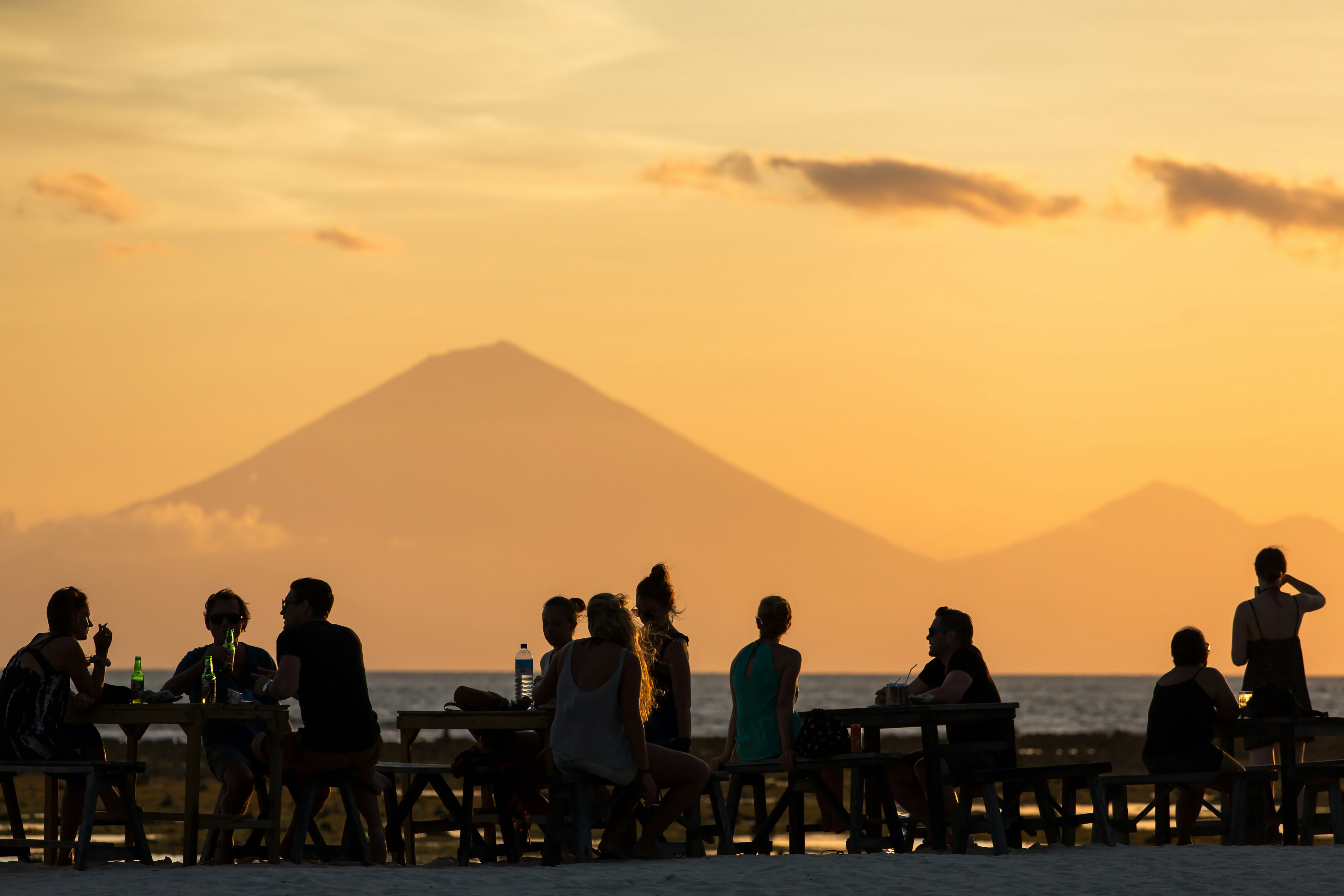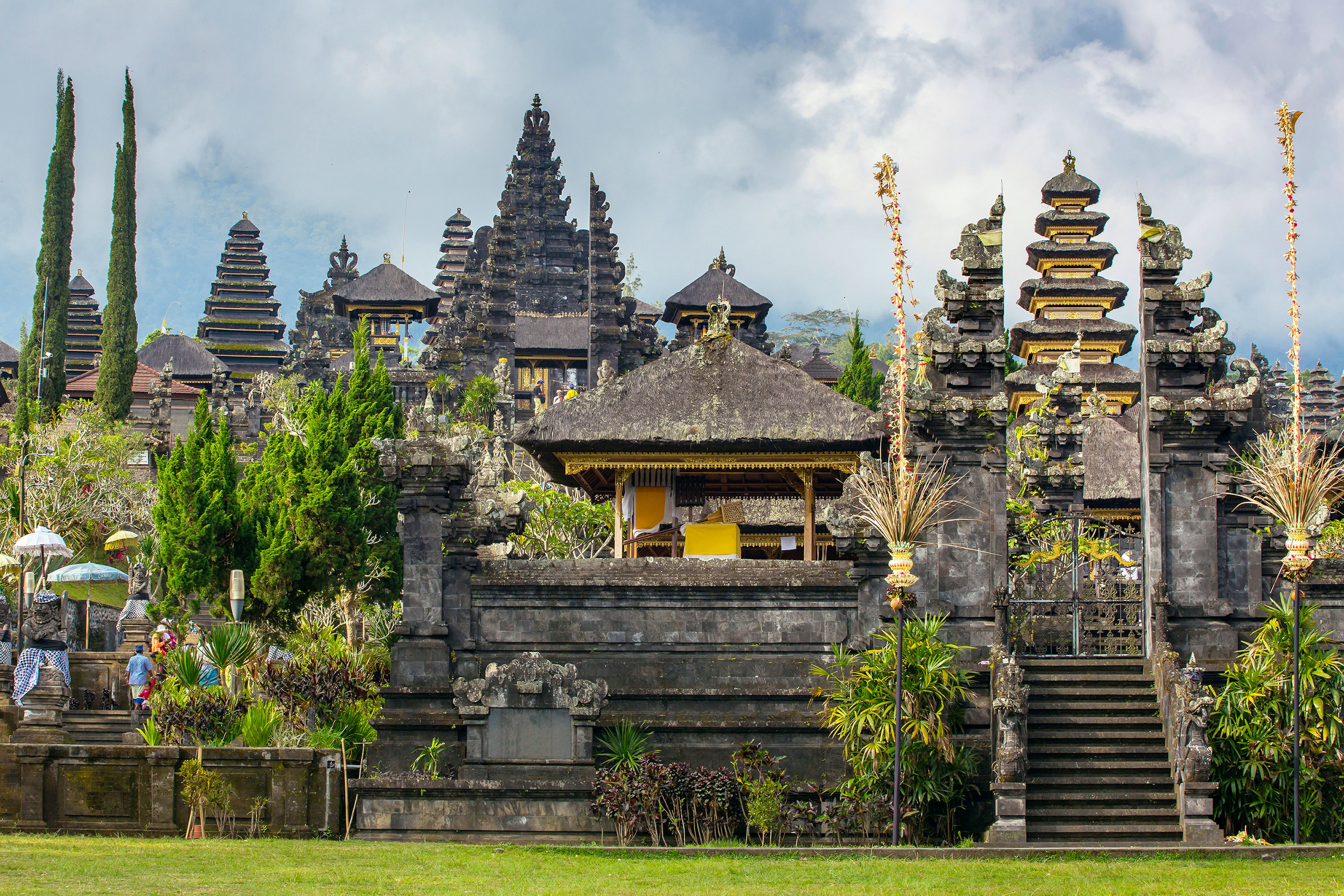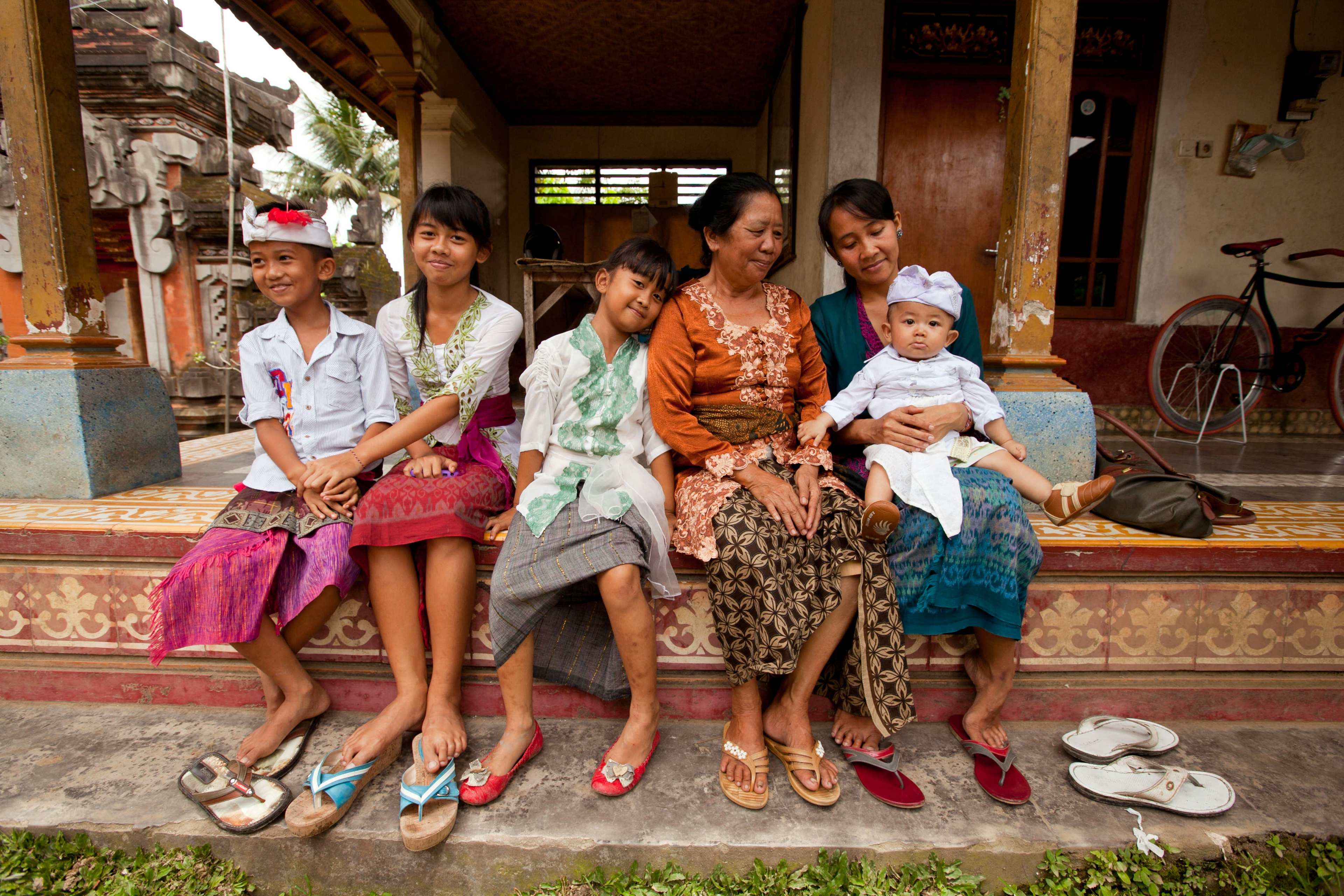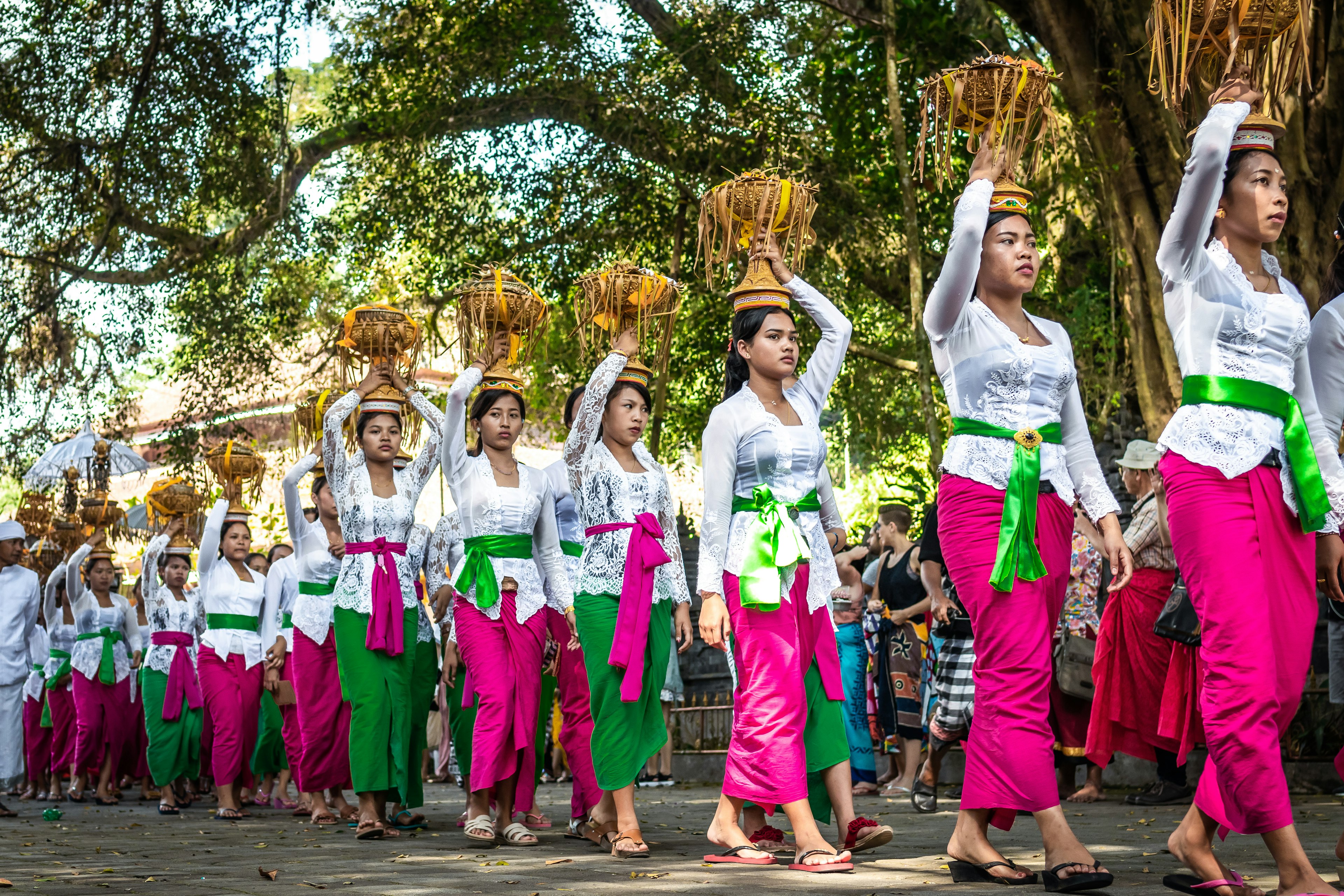If you’re looking for lavish layers of culture, rich history, glorious natural scenery and enough adventurous activities to fill a lifetime, Indonesia should be at the top of your travel list. With an estimated 13,466 islands stretching from the Indian Ocean almost to the northern tip of Australia, this country is a whopper, too.
But beyond Java, Bali, Lombok and the Gili Islands, Southeast Asia’s most populous nation remains largely unexplored by the majority of travelers to Asia. Taking just one example, the island of Sumatra is bigger than Japan and almost a world in itself, yet many travelers still ask if Indonesia is worth visiting!
Our answer is: “Yes, of course!” This chain of culturally fascinating islands stretches west to east across more than 5000km (3110 miles) of ocean, making it one of the world’s most excitingly diverse destinations. From the best times to travel to important etiquette and safety information, here are 15 things you need to know before you travel to Indonesia.
1. The best season depends on which island you visit
As you might expect for such a vast nation, the climate in Indonesia varies from region to region. This also means that you can find somewhere worth visiting in any season, so there’s really no bad time to visit Indonesia. Once you reach any specific island, however, some seasons are definitely better than others.
For example, most visitors to Bali do their best to avoid the rainy season, which normally runs from November to March. But even at the height of the monsoon, rain showers are normally short and sharp, and storms can form an unforgettably dramatic sound-and-light show between sunnier spells.
There are benefits, too, in terms of reduced crowds and lower prices, since this is also the low season for tourism. One disadvantage is that the first rains of the year wash plastic trash (one of Indonesia’s greatest problems) out of rivers and streams and onto the beaches.
At the far end of the archipelago, West Papua and the Maluku Islands tend to have their dry seasons between September and March, while enormous Sumatra and Kalimantan (Indonesian Borneo) are big enough to have weather patterns all of their own. As a rule, March to October is a good bet for avoiding the heavy rains in these areas – an important consideration for jungle regions, which can be inaccessible during the rains.

2. Choose the right visa
Citizens of the UK, USA, Canada, Australia and many other nations can obtain a Visa on Arrival (VOA) for Indonesia at some international airports, seaports and land border crossings. However, it’s simpler to apply for an e-Visa (e-VOA) online before you travel – at least 48 hours before departure.
These visas are valid for 30 days and can be extended for a further 30 days, or you can apply for a standard 60-day tourist visa via the same online portal. Make sure you have at least six months of validity remaining on your passport on your date of travel.
If you are not from a nation covered by the Visa on Arrival scheme, or you’re planning to stay longer in Indonesia to work or study, there are lots of different visa options available. The Indonesian government visa portal has a Q&A form that will direct you to the right visa.
3. Learn a few words and phrases in Indonesian
It’s been said that one-tenth of all the world’s languages are spoken in Indonesia! Many islands have their own unique languages (some have hundreds), and English is spoken only in tourist areas. Luckily for travelers, Bahasa Indonesia (literally “Indonesia language”) is spoken by almost everyone, with the exception of the youngest children and some elderly people in rural areas.
Indonesian is a relatively easy language to learn, and locals will appreciate any efforts you make to communicate in their language. Bahasa Indonesia shares much in common with Malay and has similarities to Tagalog, so your efforts to learn the language will also serve you on trips to Malaysia, Brunei Darussalam and the Philippines – for example, when traveling from Kalimantan to Sabah or Sarawak.

4. Pack clothing for the tropics, but be respectful
Indonesia has a humid, tropical climate, and wherever you go in this country, you’re likely to end up wearing shorts, T-shirts and other lightweight items of clothing much of the time. However, it can be surprisingly chilly in the highlands, and if you plan to do some trekking or volcano climbing, you will appreciate some warmer layers.
Also, be aware that planes, trains, buses and taxis are often surprisingly cold thanks to vigorous air-conditioning. Air-con units in shopping malls and hotels are often set to frigid levels, too, allowing local fashionistas to dress in the sort of chic style you might associate with the American fall.
Consider local attitudes to modesty. Some 87% of Indonesians are Muslim, and while dress codes are relatively relaxed, you are likely to feel more comfortable (and appear more respectful) if you wear long pants and clothes that cover the shoulders, particularly in rural areas where people are more traditional.
Some Indonesian women swim fully clothed, and skimpy swimsuits are frowned on away from tourist hotspots. Even in beach areas, cover up once you leave the sand. It’s considered extremely impolite for anyone to walk around shirtless, especially if entering a shop or restaurant. While Indonesian men may be happy to go shirtless at home, most would never dream of removing their shirts on someone else’s property.
If you visit temples or mosques, you will often be expected to wear a sarong to cover bare legs, and women may also be asked to cover their shoulders. Religious buildings and religious ceremonies in most parts of the country may be off-limits if you’re wearing shorts, and some sites are reserved for followers of that religion, so ask before entering.

5. Buy a local SIM card and download useful apps
Arrange an eSim for Indonesia before you travel or purchase a local SIM card at the airport when you arrive so you have call credit and internet data ready to use. It’s inexpensive and easily done – staff will upload and activate the card for you within a couple of minutes.
Make a note of your national consulate or embassy contact details in case of emergency (natural disasters are a risk in these volcanic, trade-wind-affected islands), and let people know where you are going and when you plan to return if heading to remote locations.
Before traveling, download the transportation apps Grab and Gojek to hail a rideshare car or motorcycle. This is a reassuring option for solo travelers because drivers/riders are vetted and reviewed, and there is a security alert button to hit if you feel threatened.
6. Respect your hosts’ religious beliefs
Indonesia is the world’s most populous Muslim country, but Indonesia has a secular constitution, with the exception of Aceh in northern Sumatra, where Sharia law prevails. Mosques, temples and other religious sites often have special rules for visiting (you may need to remove shoes, for example), and you should be respectful towards symbols of any religion practiced in Indonesia. Alcohol is legal but highly taxed, and drinking in public away from restaurants and bars is discouraged.
Some parts of the country are predominantly Christian (large sections of the Maluku Islands, for example), and Bali is almost entirely Hindu. Intermingled with these “formal” religions – and sometimes almost inseparable from them – is an entire spectrum of animistic beliefs.
Whatever the prevailing religion in the area you visit, look to locals for guidance on appropriate behavior and etiquette. Your trip will be all the richer if you make the effort to understand and respect the beliefs of your hosts.

7. Kick off your shoes when entering a building
Most people know that you shouldn’t walk into someone’s house wearing shoes, but it often surprises visitors to Indonesia that this also extends to many religious sites, homestays and sometimes even to hotel rooms. A rack or pile of shoes at the entrance to a building is the giveaway that you should follow suit.
While it is not strictly necessary, many owners of small souvenir shops also appreciate your politeness in leaving slip-off shoes at the door, as their businesses double as their homes.
8. Never ask elderly people their names
In many traditional communities (including in rural areas in Bali), there’s a strong prohibition on speaking the name of an older person. The gods are thought to have a list of people who are “due to be called,” and there’s a pervasive belief that speaking a name can remind the gods that someone has been overlooked for the journey to the next life.
Older women are invariably known simply as Nenek (grandmother), and older men are most commonly known as Bapak (mister) or Kakek (grandfather). As a visitor, it’s good manners to refer to an older person respectfully as Pak (mister) or Ibu (mother).

9. Offer a gift to your hosts
Wherever you travel in the world’s greatest island nation – even among communities once associated with head-hunting, such as the Dayak communities of Kalimantan, the Batak of Sumatra and the Asmat of West Papua – you’ll realize very quickly that you are among friends.
If you’re visiting a family home or staying in a community longhouse, a small gift (an oleh oleh) is often appreciated – especially something that is representative of your own country. Locally bought sarongs (often available for just a couple of dollars) or foodstuffs are conveniently lightweight alternatives.
It’s considered uncouth for an Indonesian to make a big fuss about receiving a gift, so don’t feel offended if your offering is received with just a brief word of thanks and then carefully put away (still unwrapped) to be inspected later.
You may also receive offers of food and drink as you travel around. Generally, this is out of generosity, but there have been incidents of people being given drugged food or drinks – if you’d rather be cautious, decline politely (claiming a stomach problem can be a helpful excuse).
10. While Indonesia is generally safe, there’s a small risk of pickpocketing
The vast majority of Indonesians are instilled with an almost inviolable tradition of hospitality towards strangers and travelers, and you are likely more at risk of crime in a European or American city than in most places in Indonesia.
However, it’s worth staying alert in crowded bars and marketplaces and on crowded public transport in cities, as there’s a small risk of pickpocketing or being approached by scam artists. Credit card scams are also a problem – keep your card in sight during transactions.
Lombok has a reputation for organized robberies on quiet roads, and women should follow similar precautions as they would at home, particularly in crowds. Elsewhere, community law is usually enough to ensure that penjahat (evildoers) are promptly punished.
Terrorism is an ongoing risk, as in many destinations, so check government travel advisory websites for potentially dangerous areas before you travel.

11. Be alert for natural disasters
Volcanic eruptions and earthquakes are almost a daily event on the Ring of Fire – the chain of tectonically active sites around the Pacific Ocean, which includes Indonesia. The excellent Volcano Discovery website and app provides up-to-the-moment details and alerts for almost 200 Indonesian volcanoes, as well as some fascinating background reading.
Some volcanoes are off-limits to trekkers because of the risk of eruptions – Mt Lewotobi Laki-laki, located on Flores Island, had a deadly eruption in 2024, and Mt Merapi and Mt Semeru are also highly active. When there’s heightened activity, be sure to respect official advice concerning exclusion zones.
Earthquakes are also common, though they’re usually small. Consider traveling with a small, lightweight wind chime – the sort you’d usually string up in a garden. Hang it in the wardrobe (away from the fan) in hotel bedrooms, and it will serve as an effective early-warning system for tremors.
In the event of an earthquake, take shelter under a strong piece of furniture if possible, drop to the ground, and cover your head. If you are on the coast, head to higher ground if it is safe to do so – the 2004 Indian Ocean earthquake and tsunami caused many deaths in Indonesia.
12. Drug laws are extremely strict in Indonesia
Indonesia has some of the strictest anti-drug laws on the planet. Possession of illegal narcotics can result in up to four years imprisonment, while a conviction for trafficking can often result in a death sentence – carried out by firing squad. It’s safest to have nothing to do with illegal substances on a trip to Indonesia.
13. Know the laws regarding LGBTIQ+ travelers
In Aceh, where pre-marital sex of any kind is considered a crime, same-sex relationships are also criminalized. This is the case to a lesser extent in the Sumatran city of Palembang. Elsewhere in the country, discreet same-sex couples will face few difficulties.
Parts of Indonesia – especially Maluku – have traditionally had a history of acceptance for waria (considered to be men born with women’s souls), but anti-LGBTQI+ rhetoric among politicians is making the situation harder for Indonesians in same-sex relationships. Displays of public affection, regardless of sexual orientation, are considered inappropriate by conservative Indonesians.
Few Western-style tourist hotels have an issue with same-sex couples sharing rooms, but for travel in off-the-beaten-track areas, you may appreciate the anonymity of booking through sites such as Booking.com, Agoda and Airbnb.

14. Get up to date with vaccinations before you go
Travelers to Indonesia should check with a doctor to see which vaccinations are currently recommended for travel at least eight weeks before travel. Hepatitis A and B vaccines are strongly recommended and typhoid vaccinations and malaria prophylaxis are also recommended for some areas. If you are coming from a country with a risk of yellow fever, you may be required to produce a yellow fever certificate upon arrival.
15. Don’t drink the tap water
Even locals don’t drink tap water in Indonesia; people buy bottled water or boil water to kill bugs. To be on the safe side, use purified water for cleaning teeth as well as drinking, and avoid ice unless it is made with purified water. Some hotels provide purified water supplies for guests that you can use to top up a reusable water bottle.
Indonesia has a big problem with plastic garbage. If you are staying in a property for more than a couple of days (or traveling in a group), consider buying a big 19-liter bottle of drinking water (known locally as a galon), which you can then exchange for refills, rather than throwing away scores of smaller plastic bottles during your stay.
